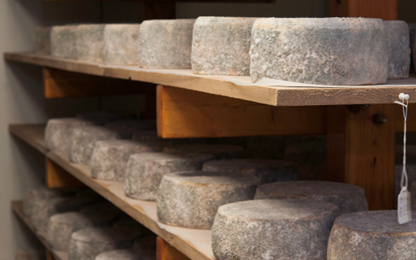High sodium diets pose a significant public health challenge, with excess consumption linked to 1.89 million deaths annually. To mitigate this problem, the World Health Organization (WHO) has recommended over the last few years the implementation of sodium intake reduction policies aimed at reducing the harmful effects of excessive salt consumption. On the other hand, it is becoming increasingly important to develop functional foods enriched with essential nutrients that are present in low amounts in regular diets. Due to the low abundance of some elements in soil and diets, we are more prone to suffering from conditions like chronic diseases related to weakened immune function and reproductive problems.
To address these problems, researchers from the Universitat Autònoma de Barcelona (UAB) have developed edible plants biofortified in essential nutrients to obtain a salt that can be used in the production of cheese and other functional dairy products.
The research team has developed new plants that are grown hydroponically and biofortified in essential nutrients. The shoots of these plants are milled into different particle sizes to obtain salt, which can be used as a substitute for common salt in the design of dairy products. This way, novel functional foods that are both low in sodium and rich in other bioavailable nutrients are developed. This allows for healthier food alternatives that do not cause taste or texture defects, unlike other common substitutes used for sodium reduction, such as KCl or MgCl2.

The research team at UAB has successfully grown hydroponically and characterized the biofortified plants, confirming their viability and functionality. Currently, their efforts are focused on applying the obtained salt to the production of different kinds of cheese.
Benefits:
- Low sodium content: The technology provides a salty flavor to the dairy product while reducing its sodium content significantly.
- Rich in bioavailable nutrients: The developed plants transform essential inorganic nutrients into organic forms, thus making them bioavailable for humans.
- Improved sensorial traits: Unlike other compounds used in the production of low-sodium dairy products, the obtained salt has minimal effects on properties like texture and flavor.
- Represents a healthy alternative: Due to its enhanced properties, it allows to produce functional dairy products targeted at specific populations, such as people with weak immune systems or suffering from hypertension.
The represented institution is looking to gather feedback from relevant actors within the agrifood industry that can help to define the following development steps to bring the technology closer to a market-ready level. Furthermore, the institution is looking to connect with strategic partners that can participate in said process of further development for the presented technology.
Institution: Universitat Autònoma de Barcelona
TRL: 3-4
Contact: Carlos G. Gredilla / c.gredilla@viromii.com

